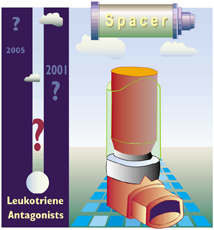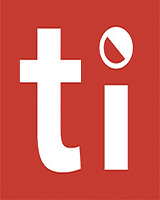This is an open-access article distributed under the terms of the Creative Commons Attribution License, which permits unrestricted use, distribution, and reproduction in any medium, provided the original work is properly cited.
NCBI Bookshelf. A service of the National Library of Medicine, National Institutes of Health.
Perry T, editor. Therapeutics Letter. Vancouver (BC): Therapeutics Initiative; 1994-.
Therapeutics Letter 29 considers the management of type 2 diabetes. Conclusions: Exercise and diet are effective in preventing type 2 diabetes. Exercise and weight loss are effective in treating type 2 diabetes, but weight loss is difficult to maintain. Sulfonylureas, metformin, and insulin are equally efficacious in improving glucose control in type 2 diabetes. The effectiveness of intensive insulin treatment in delaying the onset of complications of diabetes has been established for type 1 and to lesser extent for type 2 diabetes.
Keywords:
Diet Therapy; Diabetes Mellitus, Type 2; Exercise; Insulin; Metformin; Weight Loss
What is the rationale for leukotriene receptor antagonists (LTRAs)?
LTRAs inhibit the effects of the cysteinyl leukotrienes, which represent 3 of a large number of chemical mediators of asthma. Leukotrienes are released by several types of cells and can cause bronchoconstriction and inflammation1,2. The cysteinyl leukotrienes are particularly important mediators in patients with aspirin-sensitive asthma (characterized by chronic severe asthma symptoms, nasal polyps, and aspirin-induced bronchospasm) 3. LTRAs competitively block leukotriene receptors on bronchial smooth muscle and elsewhere1,2.
How are LTRAs handled in the body?
Both drugs are rapidly absorbed after oral administration. Zafirlukast absorption is decreased in the presence of food. Both drugs are highly bound to plasma albumin and are eliminated by liver metabolism. The half-life of montelukast is 3 to 6 hours and that for zafirlukast is 10 hours.
What is the evidence for their effectiveness?
Zafirlukast administered twice daily has been compared with placebo in two published short-term trials4,5 of patients > age 11 (see Table). There have been no published trials comparing zafirlukast with inhaled corticosteroids.
TABLE
Evidence of effectiveness of leukotriene antagonists.
Montelukast has been compared with placebo in 11 published RCTs. Most of these trials were designed to ascertain the dose and dose regimen, and showed that 10 mg of montelukast once daily at bedtime produces maximum effects in adults. At the recommended doses montelukast has been compared with placebo in one large trial in adults6 and one large trial in children7, (see Table). In one trial of 110 patients with exercise induced asthma the maximal decrease in FEV1 associated with exercise was 32.4% with placebo as compared to 22.2% with montelukast8. A recently published trial compared montelukast to inhaled glucocorticoid and placebo in adults with chronic asthma. Montelukast was better than placebo but not as effective as low-dose inhaled beclomethasone 9 (see Table).
The average effects in the trials, though statistically significant, are small and of questionable clinical significance. The effects on home peak expiratory flow rate are marginal, increase of 20L/min (6%), the day after the first dose.10
Safety
In the short-term clinical trials, adverse effects did not differ between the leukotriene antagonists, placebo or inhaled glucocorticoids. Rare cases of Churg-Strauss syndrome (allergic angiitis and granulomatosis) have been reported with both drugs10. Some of these cases may have been unmasked by steroid withdrawal, however, not all cases have coincided with steroid withdrawal. Zafirlukast inhibits liver microsomal enzymes, P450 CYP3A4 and CYP2C9, and has been shown to increase the effects of warfarin. Other clinically important drug interactions are likely, but unknown at present. Montelukast has been shown to not interact with human P450s in vitro and not to interact with theophylline, prednisone, prednisolone, ethinyl estradiol, terfenadine, digoxin and warfarin in clinical studies.
Dose and daily cost
| Dose | Daily cost | |
|---|---|---|
| zafirlukast | 20 mg tablet BID on an empty stomach (age > 11 years) | $1.50 |
| montelukast | 10 mg tablet at HS (age >14 years) | $2.20 |
| 5 mg chewable tablet at HS (age 6 to 14 years) | $1.50 | |
Conclusions
LEUKOTRIENE ANTAGONISTS IN ASTHMA
- Cause statistically significant effects on measures of airway obstruction and symptoms as compared to placebo in short-term trials.
- –– effects are detectable on the first day and do not change appreciably over 6 to 13 weeks.
- –– average clinical effects are small and would unlikely be detectable by individual patients.
- Cause average clinical benefits that are less than low-dose inhaled glucocorticoids.
- Cause few adverse effects in short-term use, but long-term risks are unknown.
- Are not appropriate for treatment of acute asthma exacerbations.
- May be useful as add-on or an alternative to inhaled glucocorticoids in problematic patients with inadequate response or intolerance, respectively
References
- 1.
- Sampson A, Holgate S. Leukotriene modifiers in the treatment of asthma .Brit Med J 1998;316:1257–1258. [PMC free article: PMC1113026] [PubMed: 9554892]
- 2.
- Renzi P. Antileukotriene agents in asthma: The dart that kills the elephant? CMAJ 1999; 160: 217–23. [PMC free article: PMC1229994] [PubMed: 9951445]
- 3.
- Christie PE. Aspirin sensitive asthma .Curr Med Lit Respir Med 1997;11:63–73.
- 4.
- Fish JE, Kemp JP, Lockey RF, et al. Zafirlukast for symptomatic mild-to-moderate asthma: A 13-week multicenter study .Clin Therap 1997;19:675–690. [PubMed: 9377612]
- 5.
- Spector SL, Smith LJ, Glass M. Effects of 6 weeks of therapy with oral doses of ICI 204,219, a leukotriene D4 receptor antagonist, in subjects with bronchial asthma .Amer J Respir Crit Care Med 1994;150:618–623. [PubMed: 8087328]
- 6.
- Reiss TF, Chervinsky P, Dockhorn RJ et al. Montelukast, a once-daily leukotriene receptor antagonist, in the treatment of chronic asthma .Arch Intern Med 1998; 158: 1213–20. [PubMed: 9625400]
- 7.
- Knorr B et al. Montelukast for chronic asthma in 6- to 14-year-old children .JAMA 1998; 279: 1181–6 [PubMed: 9555757]
- 8.
- Leff JA, Busse WW, Pearlman D et al. Montelukast, a leukotriene-receptor antagonist, for the treatment of mild asthma and exercise-induced bronchoconstriction .N Engl J Med 1998; 339: 147–52. [PubMed: 9664090]
- 9.
- Malmstrom K, Rodriguez-Gomez G, Guerra J et al. Oral montelukast, inhaled beclomethasone, and placebo for chronic asthma: a randomized controlled trial .Ann Intern Med 1999; 130: 487–495. [PubMed: 10075616]
- 10.
- Wechsler ME, Garpestad E, Flier SR et al. Pulmonary infiltrates, eosinophilia, and cardiomyopathy following corticosteroid withdrawal in patients with asthma receiving zafirlukast .J Amer Med Assoc 1998;279:455–457. [PubMed: 9466639]
Footnotes
This Letter contains an assessment and synthesis of published (and whenever possible peer-reviewed) publications up to March 15, 1999. We attempt to maintain the accuracy of the information in the Therapeutics Letter by extensive literature searches and verification by both the authors and the editorial board. In addition this Therapeutics Letter was submitted for review to 110 experts and primary care physicians in order to correct any identified shortcomings or inaccuracies and to ensure that the information is concise and relevant to clinicians.
- The Therapeutics Initiative’s objectives are unbiased review and dissemination of therapeutic evidence. Our recommendations are intended to apply to most patients; exceptional patients require exceptional approaches. We are committed to evaluate the effectiveness of our educational activities using the Pharmacare/PharmaNet databases without identifying individual physicians, pharmacies or patients. The Therapeutics Initiative is funded by the BC Ministry of Health through a 5-year grant to the University of BC. The Therapeutics Initiative provides evidence based advice about drug therapy, and is not responsible for formulating or adjudicating provincial drug policies.
- Review Management of Type 2 Diabetes.[Therapeutics Letter. 1994]Review Management of Type 2 Diabetes.. Therapeutics Letter. 1994
- Metformin & lifestyle intervention prevent Type 2 diabetes: lifestyle intervention has the greater effect.[Expert Opin Pharmacother. 2002]Metformin & lifestyle intervention prevent Type 2 diabetes: lifestyle intervention has the greater effect.Doggrell SA. Expert Opin Pharmacother. 2002 Jul; 3(7):1011-3.
- Review Insulin therapy in type 2 diabetes.[Endocrinol Metab Clin North Am...]Review Insulin therapy in type 2 diabetes.Mudaliar S, Edelman SV. Endocrinol Metab Clin North Am. 2001 Dec; 30(4):935-82.
- Effects of exercise training alone vs a combined exercise and nutritional lifestyle intervention on glucose homeostasis in prediabetic individuals: a randomised controlled trial.[Diabetologia. 2016]Effects of exercise training alone vs a combined exercise and nutritional lifestyle intervention on glucose homeostasis in prediabetic individuals: a randomised controlled trial.Slentz CA, Bateman LA, Willis LH, Granville EO, Piner LW, Samsa GP, Setji TL, Muehlbauer MJ, Huffman KM, Bales CW, et al. Diabetologia. 2016 Oct; 59(10):2088-98. Epub 2016 Jul 15.
- [Short-term intensive combined therapy with metformin, sagliptin and dapagliflozin for newly diagnosed type 2 diabetes: efficacy, weight control and safety].[Nan Fang Yi Ke Da Xue Xue Bao....][Short-term intensive combined therapy with metformin, sagliptin and dapagliflozin for newly diagnosed type 2 diabetes: efficacy, weight control and safety].Xu Y, Wu P, Wen W, Chen H. Nan Fang Yi Ke Da Xue Xue Bao. 2019 Nov 30; 39(11):1305-1311.
- Leukotriene Antagonists - Therapeutics LetterLeukotriene Antagonists - Therapeutics Letter
- Biosimilars or Biologics: What’s the difference? - Therapeutics LetterBiosimilars or Biologics: What’s the difference? - Therapeutics Letter
Your browsing activity is empty.
Activity recording is turned off.
See more...
